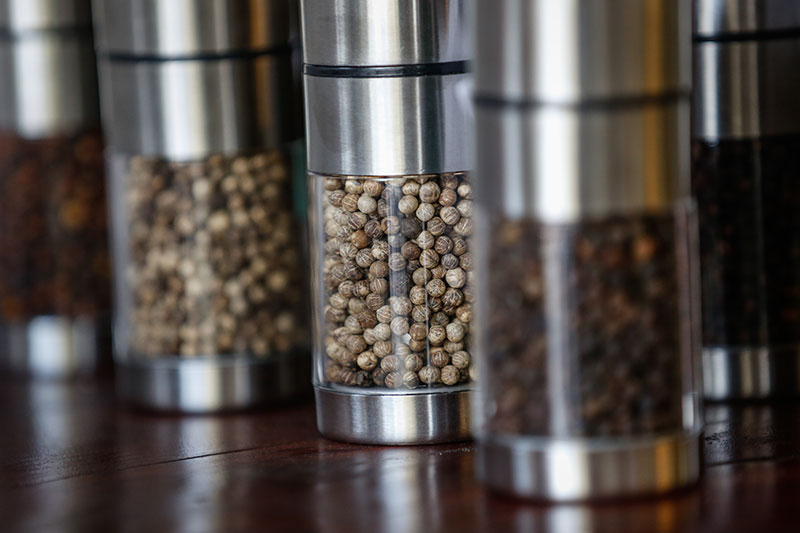Kampot Pepper, famed for its powerful fragrance, has become the first Cambodian product to be registered with a protected label in the E.U., according to a statement released this week, raising hopes that the production of imitation goods will slow.
On February 18, the European Commission (E.C.) listed “Mrech Kampot/Poivre de Kampot” as a Protected Geographical Indication (PGI), a qualification expected to build the pepper’s reputation and reduce sales of counterfeit products, the statement said.

Any product exported to the E.U. purporting to be Kampot Pepper must “carry the PGI quality logo from now on,” it added.
This will certify that the product comes from Cambodia’s prime pepper producing region, Kampot and Kep provinces.
“The mineral-rich soil in Kampot produces sharp aromas and spicy tastes—when ground to a powder, it is used to add distinct flavor to meat and fish dishes,” said Luu Meng, an award-winning chef and president of the Cambodia Hotel Association.
“Because the location produces a range of unique varieties, they can sell from $7 up to $100 per kilo.”
This high market value makes Kampot Pepper attractive to counterfeiters, said Nguon Lay, president of Kampot Pepper Promotion Association.
“The Kampot Pepper brand is stolen and it is mixed in with other pepper not produced in the actual production region or by our members,” Mr. Lay said. He estimated that about 200 tons of fake Kampot Pepper was currently circulating in European markets, although the country only exported about 40 tons of the spice last year, according to the association.
“Europe is one of our biggest markets—particularly France and Germany, but the U.S. and Japan are big, too,” he said. “We hope this label will help fake Kampot Pepper levels drop.”
Kampot Pepper is now the 20th product protected by the E.U. that does not come from within the bloc, a list that also includes coffee from Colombia and India’s Darjeeling tea.
Production of Kampot Pepper nearly doubled last year compared to 2014, to 60 tons harvested from 25 hectares of pepper plantations, according to the pepper association.
Sebastien Lesieur, an owner of Farmlink, an agrobusiness firm that supports Kampot Pepper farmers looking to reach international markets, said the new status would help force out counterfeit products.
“If some resellers do not follow the rules, the custom/counterfeit agents can remove the products from the shelves and they will have to pay a fine,” Mr. Lesieur said in an email Thursday. “Before this status was adopted, any pepper could claim to be called Kampot Pepper.”
“But we are sure that now all resellers [to Europe] will pay more attention to the provenance of their pepper.”



